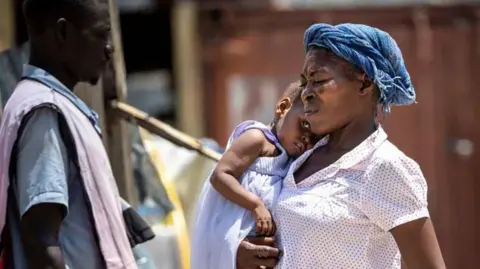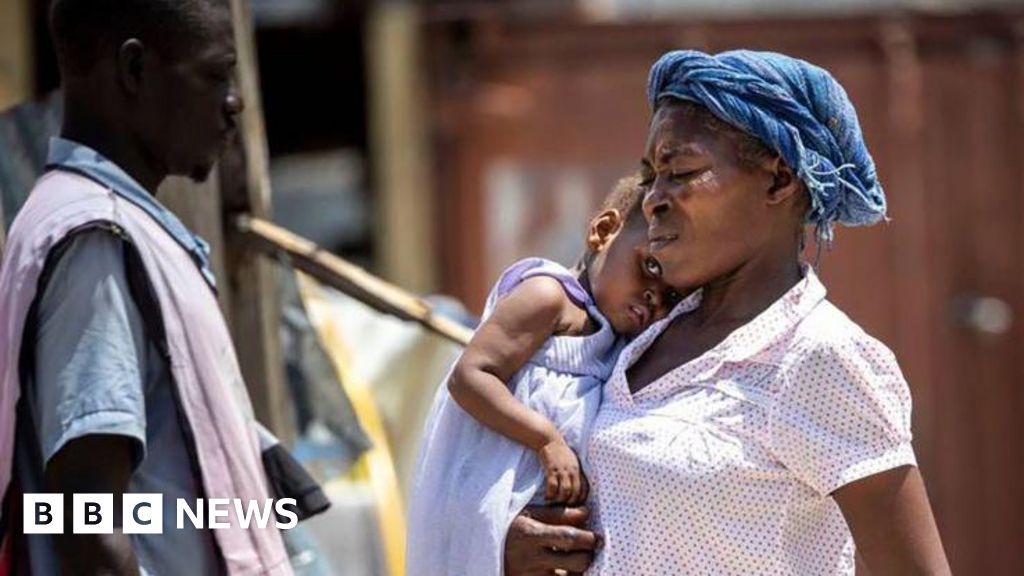 Getty
GettyHaiti’s government has taken a key step towards holding long-delayed elections with the creation of a body which will oversee the polls.
The nine-member provisional electoral council – set up on Wednesday – has been tasked with organising elections by February 2026.
The last time Haitians voted someone into power was in 2016.
Since then, armed gangs have seized control of almost the entire capital, Port-au-Prince, as well as large swathes of rural areas of Haiti.
So far, seven members of the provisional electoral council (CEP) have been named.
Among them are representatives of the media, academia, trade unions, and religious groups.
The creation of the CEP comes less than two weeks after a visit to Port-au-Prince by US Secretary of State Antony Blinken, who had urged Haiti’s provisional government to move forward with the electoral process.
Blinken said setting up an electoral council was a “critical next step”.
Presidential elections were last held in Haiti in 2016, when Jovenel Moïse of the Tèt Kale party was elected for a five-year term.
Since Moïse’s murder by Colombian mercenaries in July 2021, the post of president has been vacant.
In the following years, Haiti was governed by Ariel Henry, the man whom President Moïse had nominated as his prime minister shortly before he was killed.
But when Henry left for a summit in Guyana on 25 February 2024, gangs seized the international airport in Port-au-Prince and prevented him from returning.
Henry resigned in April and a transitional presidential council (TPC) was created to lead the country until elections can be held.
The TPC named Garry Conille as interim prime minister, to serve until a democratically elected government takes over.
A Kenyan-led multinational security force was also despatched to help the Haitian police reign in the gangs.
While the multinational force has succeeded in rounding up some gang leaders, the power of these criminal organisations has grown to such an extent that Prime Minister Conille expanded the state of emergency to the whole country earlier this month.
The multinational force suffers from underfunding and so far only 600 Kenyans and a small contingent of Jamaicans have arrived in Haiti.
Last week, United Nations Secretary General António Guterres berated the international community for not offering Haiti more help: “I find it a scandal that it has been so difficult to mobilize funds for such a dramatic situation.”


